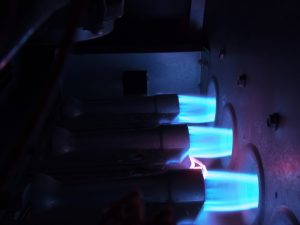 Heating, ventilation, and air conditioning systems are a modern innovation, so we rarely think of the safety risks sometimes associated with them. Today’s heating systems are safer than ever before, but there are still injuries and even deaths associated with them each year. Caring for your heating system, along with knowing the risks, can help you avoid them.
Heating, ventilation, and air conditioning systems are a modern innovation, so we rarely think of the safety risks sometimes associated with them. Today’s heating systems are safer than ever before, but there are still injuries and even deaths associated with them each year. Caring for your heating system, along with knowing the risks, can help you avoid them.
Today, we present a brief guide on how to keep your HVAC systems free from danger, or how to detect potential dangers early. In case of emergency, or when you worry about a safety risk, contact a 24-hour heating contractor, like our team!
Have and Test Smoke and CO Detectors
Hopefully, you’ve already got smoke detectors in multiple locations of the home, especially near areas where people sleep. Carbon monoxide detectors have only started to be regulated in the last 10 years or so, so you may not already have these. Carbon monoxide (CO) is a toxic, odorless, colorless gas, so this is one of the most important things you can own. It’s possible for a faulty vent system or heat exchanger to leak CO into your home.
In addition, it’s important to test these alarms every month. At the beginning of each month, hold down the button on the alarm and make sure it beeps. Change the batteries every 6 months (even if they’re still working), and replace the unit in 10 years.
Keep Up with Regular Heating Inspections
Routine heating inspections help your heater to stay in the best shape possible. This means it can run more smoothly and efficiently, but more importantly, you can avoid a dangerous situation.
After an inspection, a technician can tell you whether your heating system is at risk of overheating, if a limit switch is not functioning properly, or if the heat exchanger shows signs of cracking. It’s important that you fix each of these issues, or replace your heating system, as soon as possible.
Don’t Ignore “Small Problems”
A seemingly small issue can turn into much more if you give it some time. If you hear an odd noise from your heating system, if it’s not heating the home thoroughly, or if it seems to have trouble starting up, you should not ignore the problem.
First of all, it won’t get better on its own. Secondly, it could be an indicator of a larger safety issue. For example, heaters start and stop too frequently when a safety switch detects an issue and shuts off the system prematurely.
Change the Filter Regularly
You should change your air filter once every month, or every 3 months at most. If you don’t, a number of problems can occur with any HVAC system. The biggest risk occurs with a gas furnace. The restricted airflow can cause the components of the furnace to become overworked, and the entire system could overheat. This is something that’s easy to avoid—why wouldn’t you?
Contact Johansen & Anderson Inc today. We offer regular inspections for your HVAC in Plainfield, IL, and we can offer 24-hour service and fast repairs when you need them.
